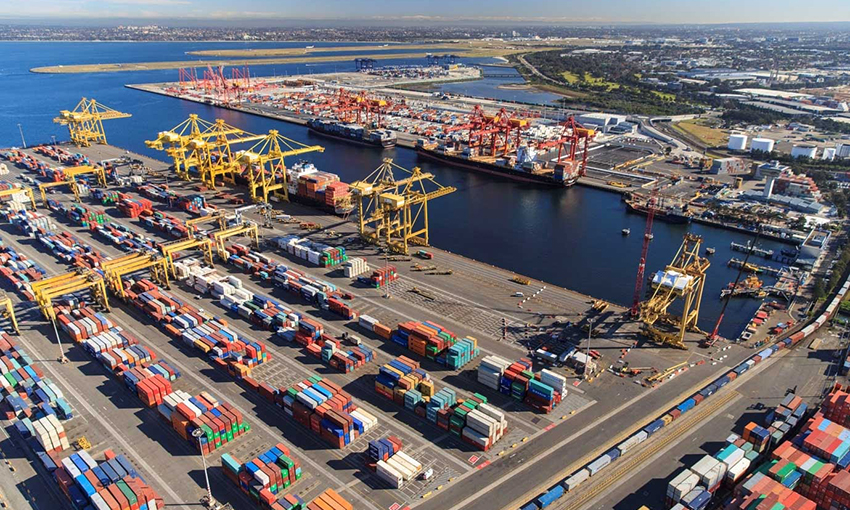IT SEEMS counterintuitive but even as Australia struggles out of recession and pandemic, a number of lines have determined that the state of services through Port Botany require the imposition of an additional congestion charge for a variety of reasons including the lack of overtime resulting from legally protected industrial action by stevedore employees at Port Botany. At the moment, charges have been imposed by CMA GCM as well as by ANL and Pacific Alliance Express. At the same time, MSC has announced a General Rate Increase on certain freight starting on 1 October 2010.
The increases through the congestion charge have not been imposed by all the lines as I understand that COCSCO is not introducing such charges even though they are in the same operating environment. Which does beg the question as to how such additional charges cannot affect all parties and how they are precisely calculated.
At the same time, there have been increases in problems with access to empty container parks where empty containers are supposed to be de-hired within a prescribed period otherwise detention charges are payable. These only add to the pressures on parties in the industry with the uncontrolled increase in stevedore landside infrastructure access fees and the significant costs and compromises to business occasioned by the COVID-19 pandemic.
The issues have not gone without notice in these difficult times, especially by freight forwarders, exporters and importers who are obliged to pay those additional amounts which have been announced which are in addition to original negotiated charges and are presumably allowed by the detailed terms and conditions of the lines. Not only does it increase charges, it places significant pressure on freight forwarders who are normally obliged to pay the fees and try to recover them against their importer and exporter clients. If the amounts are not paid it increases the “holding costs” including complex issues in dealing with “abandoned” cargo which importers can no longer afford. Without invoking jurisdiction over the issue, a number of federal ministers have issued a media release calling for calm and seeking a reasonable resolution to the issues, but that mainly addressed the consequences of the industrial action as opposed to the increases om costs which are seen as a private sector issue.

There seems to be a gap in the ability or desire to regulate these charges and their impact, especially when they are not being imposed by all the lines at the same time in the same manner. The lines will no doubt point to the rights they reserve to increase charges in their trading conditions. The ACCC does issue an annual report on the Container Stevedoring Industry as opposed to the lines and the ACCC has not raised specific action to be taken. Further, in the absence of evidence of direct collusion between the lines, or evidence of “unconscionable conduct”, the ACCC may believe it has a lack of jurisdiction unlike in the air cargo industry where there has been significant litigation against air cargo providers. Industry has previously pressed state governments to action on the stevedore access charged but there has been a lack of willingness to take direct action against those charges.
The issue therefore is the remedies which may be available to governments, its agencies and the private sector. As mentioned earlier the ACCC may be reluctant to take on these charges, especially if the lines argue that they cannot operate without these additional charges. As with the action on stevedore charges, the IFCBAA has been pro – active in raising these issues with governments, their agencies and the private sector, including initiating contact on these issues with the ACCC and federal and state governments. I am involved in considering legal or other remedies which may be available and am working with the IFCBAA and other members of industry so these charges may be reviewed or challenged. However, those whose cargo is being affected may be disinclined to support action against the lines which carry their cargo, especially with decreased numbers of providers in the shipping trade.
From my perspective I would like to see federal and state governments and agencies take action to involve themselves with these new congestion charges as well as the stevedore access charges which are so costly to industry using those services. There is a real imbalance between industry providing the services compared with those using the services. Usually, governments like to address those imbalances, especially when those facing adverse actions have little or no negotiating position. Additional charges cannot assist those trying to recover business and leaves freight forwarders exposed to having to pay the charges if their clients do not, which also increases the possibility of abandoned containers and dealing with their contents. If governments and their agencies claim they have no jurisdiction then powers should be in line for immediate action. For example, the federal government could re – instate the price signalling provisions for the ACCC which were aimed at industries taking action to increase charges or otherwise alter services following the action by one or more influential parties.
Similarly, government could require those increasing charges to notify and justify proposed charge increases. Further, given the national significance of the issues around the charges of the lines and actions of others in the supply chain, we could even go as far as the US and establish a new agency such as the Federal Maritime Commission and grant it jurisdiction to review charges by the lines and others in the supply chain. There does seem to be a need for additional transparency on these charges and how they can be imposed on parties who believed that they had already negotiated their rates and were working their margins around such rates. While many in industry need to pay these additional charges, I can’t see consumers readily paying additional charges expressly imposed because of these actions (was $2 but now $2.50 thanks to congestion charges).
Ultimately, maybe we also set up a secondary market where the lines are directed to those ports which are not congested and with more reasonable other charges. The other ports could bid for those services. That would certainly boost coastal trading to bring specific cargo to specific adjacent ports as opposed to everything being moved to the major ports.
Andrew Hudson is a partner at Rigby Cooke Lawyers

